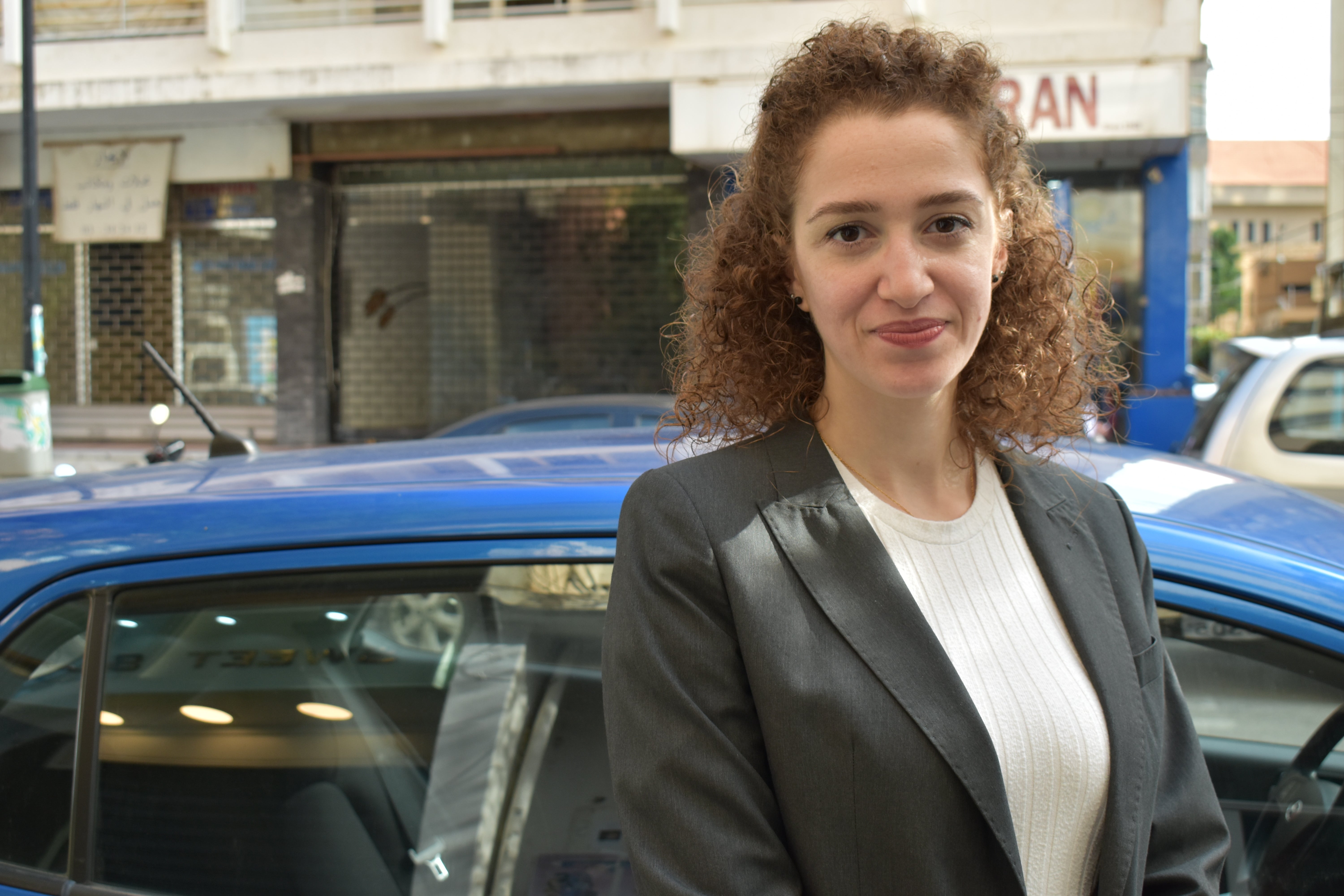In the words of Miray: “My journey empowered me to challenge societal stereotypes and advocate for change”
Date:
Miray Mtanious, 31, navigated separation, societal pressure and the challenges of single-motherhood at the age of 26. Last year, Miray joined the Women’s Protection Committee in Beirut, created by UN Women and Kafa and generously funded by the Government of Australia. The Committee provides awareness-raising on gender-based violence (GBV), the prevention of sexual exploitation and abuse (PSEA), and accountability to affected populations (AAP). Miray shares her story of personal transformation, liberating herself from societal constraints and becoming an inspiration for others facing similar struggles.

“Marrying at the young age of 19, I once held the belief that love alone could sustain a marriage. However, reality unfolded, leading to my separation from my husband at 26, fueled by persistent disagreements and other deeply personal reasons. In the eyes of both my family and society, this separation was viewed as a form of dishonoring women.
The pressure from my community, including my parents, was immense, and with two young children to care for, finding a job became a daunting challenge. The lack of support from my family during the separation was particularly painful, and societal judgment added another layer of difficulty when I started looking for employment.
Kafa played a crucial role in helping me navigate through these challenges. Initially, I sought help from a religious man who directed me to Kafa, and their support allowed me to break free from the constraints imposed by societal norms. I actively participated in UN Women and Kafa’s Women’s Protection Committee, which was created to provide women in marginalized communities with gender-based violence trainings, recognizing the opportunity to be a leader and a role model for other women facing similar struggles. In the project, I underwent extensive training sessions, gaining valuable skills in handling gender-based violence, understanding its types, and becoming adept in providing protection services.
Through this committee, I conducted 26 sessions, reaching and positively influencing 130 women, over 10 per cent of which later sought out protection services from Kafa. I shifted from merely sympathizing with others’ problems to offering practical support and empathy without judgment. My journey empowered me to challenge societal stereotypes and advocate for change. I actively engaged with my community, family and friends, raising awareness about GBV, violence and the importance of seeking help.
The project not only transformed my life but also had a profound impact on those around me. The most memorable experience was witnessing a woman in one of my sessions who was previously unable to share, due to familial pressures, find the courage to reach out to Kafa for assistance.
Looking ahead, my future plans include finalizing my divorce and creating a stable home for my children. The project not only restored my confidence but also opened a channel for others to express themselves, furthering the cause of breaking societal norms surrounding marriage and violence.”
Under UN Women's project entitled "Humanitarian Assistance to Women by Women: Women at work to reduce period poverty and food insecurity in the Lebanon Crisis," local NGO Kafa established Women’s Protection Committees, supported by generous funding from the Government of Australia. These committees have the central goal of raising awareness about gender-based violence within their respective communities. Comprising 10 community members from the Bekaa and 10 from the Beirut region, the chosen women underwent extensive training to evaluate their current knowledge and receive capacity-building on GBV, PSEA, AAP and women’s empowerment. These committee members have gone on to organize subsequent sessions that have successfully reached at least another 576 women and girls.